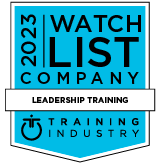I Fail So You and Your Leaders Don't Have To

Let's Have a Chat About the Power of Vulnerability and the Growth Mindset in Life, Leadership, and Learning.
According to Carol Dweck, "In a growth mindset, people believe that their most basic abilities can be developed through dedication and hard work—brains and talent are just the starting point. This view creates a love of learning and a resilience that is essential for great accomplishment.”
I believe a growth mindset grew within me unconsciously starting at an early age.
At 11, I was the smallest and lightest person on the rugby team. Yet, I didn't let size get in the way of believing I didn't deserve to be on the starting lineup.
At 14, I got my first real job as a pot wash for a famous chef. I realized that I wanted to prepare the vegetables and food for him. Even though I wasn't there yet, I never stopped working hard until the day he asked me to take it on. It was a proud day!
At 27, I moved to America. Never lived here, never worked here, and knew only one person, but I believed that though I wasn't there yet, I would "figure it out".
In 2015, I started my own business. All I had was a laptop, phone, email address, and a business name, yet I was dedicated to changing the industry and had to start somewhere.
The common thread through the risks I've taken in my life has been a mindset of, "You are not there… yet".
Just one, small, simple word makes an immense difference to one's mindset.
Similarly, it can make a profound difference in how one perceives the world.
Having a growth mindset is everything.
As I reflect on my life and the tough times we are all facing I continue to believe life is a great experiment.
Two key tenants toward having a growth mindset are to embrace learning and be willing to fail.
To truly engage in learning one must understand the power of making mistakes.
You will fail, you will learn, you will get back up, and you will do it again better.
With this in mind, there is no failure in life. There is only learning.

I have been in the learning industry since 2002 and after starting my own learning business in 2015, I believe DX Learning is built around my life experiences and the necessity of having a growth mindset and stimulating it in others.
DX's goal is to empower others in being their best selves, flying the growth mindset flag, engaging in life as the great experiment it is, and passing the baton to those they serve at work and home.
We are fighting the good fight against having a fixed mindset.
According to Carol Dweck, "In a fixed mindset, people believe their basic qualities, like their intelligence or talent, are simply fixed traits. They spend their time documenting their intelligence or talent instead of developing them. They also believe that talent alone creates success—without effort.”
By avoiding failure we are also avoiding developing ourselves into the best we can be. It takes time, experience, and a healthy learning environment to fully grasp that failure is simply a lesson toward improvement.
It takes vulnerability to own our mistakes and share them with others. It's a learned skill that is honed over time.
It took me years to feel comfortable sharing and leading with vulnerability. Now I work hard to model it both at home and at work.
We all make mistakes, yet with a fixed mindset, one is more likely to blame everyone but themselves. No one wins with this mentality.
It's hard for people to trust a leader who has a fixed mindset. They don't feel comfortable speaking up and sharing vulnerably.
It feels as if we are always hiding something. This is a huge burden on one's brain and soul. I believe this is why employee engagement in retreating and burnout is rife.
Leaders don’t learn from just being successful, they learn through their mistakes and sharing them vulnerably.
When the $%#^ hits the fan, it's the leaders who hold onto a fixed mindset that are the ones who struggle and fail.
The three biggest tools in triggering a growth mindset are to celebrate failure, consistently ask for constructive feedback, and be willing to ask for help rather than be a know-it-all.
With a growth mindset, a mistake is an opportunity to learn and improve. It's celebrated, not shamefully swept under the carpet.
The more we speak up and own our mistakes the more we will show up in the world as our true, authentic selves.
We are human. Part of that humanness is imperfection. So why not celebrate that?
This is why we embrace and celebrate our mistakes here at DX.

As the founder and CEO of DX, I have made nearly every mistake there is to make.
Fortunately, this means I have only gotten better as a leader.
It also means that the thousands of leaders I work with who have gone through our training programs and all those who will in the future can learn from me and not make the same mistakes I did.
A few mistakes I have learned from…
Over controlling people.
I lost a great salesperson about 4 years ago due to spending too much time "telling, showing, and advising" him on how to do his job rather than telling him what was expected and granting him the autonomy he needed to thrive. Now I understand the importance of outcomes-based leadership in all our programs and as a leader provide crystal clear expectations in order to trust my team to achieve the desired outcome on their terms.
Over empowering people.
DX lost a significant amount of revenue when I overcompensated from my previous mistake and gave too much autonomy to my sales team while not hold myself accountable to the agreed outcomes. Now we understand the importance of creating shared expectations where the team get's buy-in to the outcome. It's no longer a one-way street and this shared commitment stimulates accountability.
The Illusion of Agreement.
I made the mistake of thinking a team member and I were on the same page with a specific goal when, in fact, there was a major misinterpretation. Both of us left the conversation thinking we had clarity, leading to a stressful 72 hours of the rest of the team executing a task I had not requested. This is why we isolate the cognitive bias that needs awareness in all of our programs. Assumption blinds us all and we empower participants in our programs to see their blind spots so they can learn from them.
The Courtesy Bias.
I let my courtesy bias get in the way of not delivering timely, candid feedback for fear of upsetting a team member. This lead to performance issues and ultimately their leaving of the company. Now psychological safety underpins everything we do at DX. Fear of speaking up is a challenge every team faces which is why it is built into each of our programs.
Assuming everyone is like me.
I grew up with the mindset that work was how I showcased my skillset. I willingly work long hours as I consider my work my art, because of this I was sending emails and requests to my team from 5am in the morning to 10pm at night. This lead to immense unbalance within the team as people thought they had to reply ASAP to appease me. Now we embrace the new golden rule of leadership, "treat others how they want to be treated."
There are many more I could list and, to be honest, it would have been easier to blame others for these mistakes. Yet, as a leader, the buck stops with me. This is hardwired into our culture and every program we deliver.
I am responsible and hold myself accountable for the performance and well-being of my team.
In the midst of a pandemic, DX is still standing strong because of the mistakes I made in years gone by that have made me the leader I am today.
Do I get it wrong? Yep. Often. But I get better for every failure.
At DX, we only hire people who embody a growth mindset. It's part of our values. We work hard to live it out every day and call each other out when it's not being embraced.
Thanks to our collective growth mindset we were able to re-build our business from the ground up after revenue went from 3-million to zero in a matter of 2 weeks in March 2020.
We're still here and we intend to stick around, growth mindsets and all.
What will you do embrace a growth mindset in yourself and those you serve so that you may also stand the test of time?
Insights

Subscribe to Our Monthly Newsletter!
For managers and talent professionals who truly believe in putting people first, the CARE to Win blog is your gateway to the latest insights on human-centric leadership. Join us as we champion the people first movement.
Need some time apart? Are we emailing you too often? Just give us your feedback, and we promise we’ll respond. We really do care. And if it’s still too much, just unsubscribe. It’s cool.
.jpg) Alex Draper
Alex Draper


